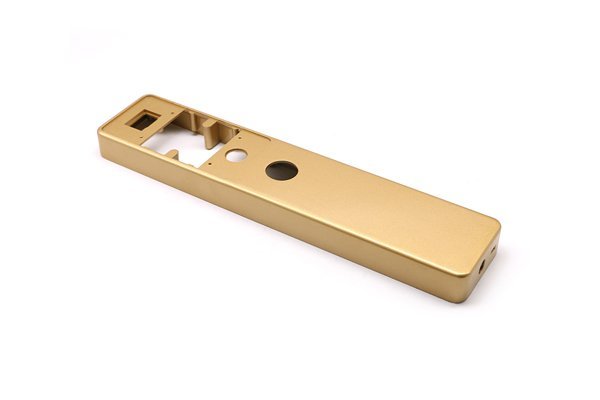Did you know that Swiss machining techniques revolutionized the landscape of precision manufacturing, particularly in the field of CNC turning? In an age where precision and efficiency are paramount, industries can achieve tolerances of up to 0.005 mm—or better—with CNC turning machines equipped with Swiss technology. This incredible precision has made Swiss CNC turning one of the most sought-after methods for producing custom components across various sectors, from aerospace to medical devices. But what exactly is CNC turning with Swiss technology, and why should manufacturers consider it for their custom component needs?
In this comprehensive blog post, we will delve into the myriad benefits of CNC turning with Swiss technology, its applications, challenges faced, and the future of this essential manufacturing process.
Understanding CNC Turning and Swiss Technology
What is CNC Turning?
CNC, or Computer Numerical Control, is a manufacturing process in which pre-programmed computer software dictates the movement of machinery and tools. This allows for the precise creation of parts by controlling the operation of lathes, mills, routers, and grinders. In CNC turning, raw material is shaped into a desired form by rotating it against a cutting tool. This technique is commonly employed to produce cylindrical parts, fasteners, shafts, and bolts.
The Swiss Technology Advantage
Swiss technology refers to a technique that originated in Switzerland and specializes in the machining of small, intricate components with superior accuracy. Traditional Swiss machines utilize a sliding-headstock design that enables the workpiece to be fed through several tools sequentially, which allows for minimal waste of material and maximized efficiency.
In essence, CNC turning with Swiss technology combines the efficiency of computerized precision machining with the unique design attributes of Swiss systems, making it a powerhouse in custom component manufacturing.
Key Benefits of CNC Turning with Swiss Technology
The hallmark of Swiss CNC technology is its impressive precision. With tolerances as fine as 0.005 mm, manufacturers can create components that meet rigorous specifications for industries such as aerospace, automotive, and medical. Such accuracy is crucial for parts that require exact measurements and consistent quality over production batches.
Swiss CNC turning machines utilize an innovative approach to feeding raw materials through multiple operations without manual intervention. This streamlined process accelerates production speed, allowing manufacturers to produce more components in less time without sacrificing quality. As a result, businesses can achieve higher volumes of custom parts while minimizing lead times.
CNC turning with Swiss technology allows manufacturers to work with a wide variety of materials, including metals, plastics, and even composites. The adaptability of Swiss machines means that users can customize their processes based on the specific materials and dimensions required for a particular project, making it ideal for custom parts manufacturing.
The design of Swiss turning machines maximizes material utilization, minimizing waste throughout the manufacturing process. With proficient programming and operational efficiency, manufacturers can cut down on scrap materials and associated costs. This commitment to sustainability is becoming increasingly important in today’s environmentally conscious marketplace.
When developing new products or components, rapid prototyping is critical. The speed and flexibility of CNC turning with Swiss technology offering allow manufacturers to quickly create prototypes, test their designs, and iterate as needed. This agile response to product development can significantly shorten time to market.
The intricate and often complex geometry of parts produced by Swiss CNC turning can prove difficult for traditional machining techniques. Yet, the capabilities of Swiss technology allow for the manufacturing of parts with intricate designs, including features like threading, multi-axis geometrics, and contouring, all with outstanding accuracy.
With CNC programming providing a consistent framework for machine operation, manufacturers enjoy consistent quality from batch to batch. Swiss CNC turning minimizes human error during machining, which can significantly impact part quality, ensuring that every component produced meets predefined specifications.
Applications Across Industries
The versatility of CNC turning with Swiss technology enables its application across numerous sectors. Here, we take a closer look at some specific industries leveraging this technology for custom components:
The aerospace sector demands the highest standards of precision and reliability. CNC turning with Swiss technology helps produce critical components like turbine blades, fittings, and fasteners, ensuring they meet rigorous safety standards.
From engine parts to transmission components, the automotive industry requires high-quality components that can withstand extreme conditions. Swiss CNC turning aids in producing small yet robust components that drive the performance of modern vehicles.
Precision is essential in the medical field, where components must operate flawlessly and safely within the human body. Swiss CNC turning produces intricate medical parts, such as surgical instruments, implants, and hardware.

The electronics industry consistently seeks small but complex parts. CNC turning with Swiss technology produces components including connectors, cases, and circuit board holders essential for high-tech devices.
In defense manufacturing, the integrity and reliability of individual components can be the difference between success and failure. CNC turning ensures these critical components uphold the highest quality standards.
Challenges to Consider
While there are many benefits to CNC turning with Swiss technology, manufacturers must also navigate several challenges when integrating this method into their operations.
The cost of Swiss CNC machines can be a significant barrier to entry for some manufacturers. These machines often require a substantial upfront investment, making it essential for businesses to weigh the cost against potential gains in efficiency and accuracy.
Swiss CNC machines, although user-friendly, require skilled operators to maximize their capabilities. Training staff and ensuring they have the necessary expertise can demand additional resources and time.
Like all machinery, Swiss CNC turning machines require ongoing maintenance to remain operational and accurate. Businesses must allocate budget and labor resources to maintain these sophisticated pieces of equipment.
While CNC machines are designed for automation, programming complexities can arise due to the intricate designs involved in Swiss machining. Achieving program precision may take time, especially for more complicated components.
The Future of CNC Turning with Swiss Technology
As technology continues to evolve, the future of CNC turning with Swiss technology promises exciting advancements. Here are several trends that may shape the trajectory of this manufacturing process:
Automation is increasingly becoming a focal point across industries. With advancements in robotics and AI, the automation of machine operations will likely enhance production rates while maintaining or even improving quality.
AI and machine learning can optimize machining processes by analyzing data in real-time, allowing machines to adapt to changing conditions, ensuring efficiency, enhancing predictive maintenance, and reducing downtime.
Unifying CNC turning with additive manufacturing (3D printing) might open new avenues for creating complex designs that were once unattainable. This convergence of technologies taps into the strengths of both approaches, creating hybrid solutions tailored to tomorrow’s manufacturing needs.
As industries face mounting pressure to adopt sustainable practices, CNC turning could evolve with innovations aimed at reducing waste, improving energy efficiency, and utilizing eco-friendly materials.
As materials science advances, CNC machines will likely develop the capability to work with a broader array of advanced composites and alloys, further enhancing their applicability across diverse sectors.
CNC turning with Swiss technology represents a transformative approach to custom component manufacturing that prioritizes precision, efficiency, and versatility. As we have discussed, the benefits of this method are manifold, from exceptional accuracy to reduced material waste. Across industries such as aerospace, automotive, and electronics, the applications of Swiss CNC turning continue to redefine quality standards.
However, businesses must also consider the challenges that accompany the adoption of this technology, including high initial investments and the complexity of machine programming. Despite these barriers, the future looks bright for CNC turning with Swiss technology as automation, AI integration, and sustainable practices gain momentum.
In a rapidly evolving industrial landscape, understanding and leveraging the benefits of CNC turning with Swiss technology is an essential strategy for companies seeking to enhance their production capabilities. With precision and efficiency becoming increasingly critical in manufacturing, it is crucial for businesses to weigh their options carefully, adapt to new technologies, and invest in methods that will improve both their output and quality.
CNC turning with Swiss technology isn’t just a manufacturing process; it is a cornerstone in the advancement of precision engineering, and its importance cannot be overstated. Still pondering the relevance of this blog? Consider it a call to action to reassess your manufacturing strategies—your next innovation could well depend on it.






